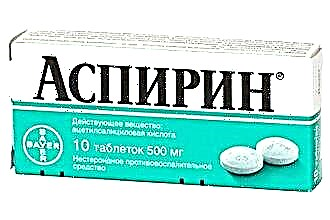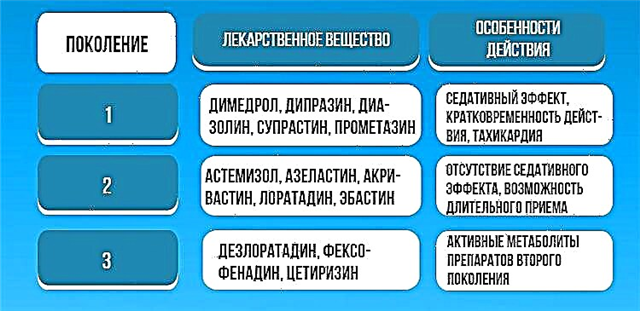Effective treatment of tonsillitis in most cases is impossible without the use of antibacterial drugs, since it is an infectious disease caused by pathogenic microorganisms: bacteria, viruses, fungi. If untreated, the disease quickly becomes chronic and provokes the development of complications. Often it even comes to the surgical removal of the tonsils. And this is undesirable, since they perform an important protective function. Therefore, it is better, if you decide how to treat tonsillitis, will be a doctor.
Causes of the disease
 Acute tonsillitis is caused by infection. Getting on the mucous membranes, it provokes inflammatory processes, which can then affect neighboring organs and tissues, and pass into a purulent form. People with strong immunity rarely get sore throat, especially since the tonsils themselves consist mainly of lymphoid tissue, which, in response to an attack by microbes, produces special proteins that destroy them. But the problem is that some bacteria, for example, streptococci, are able to defend themselves and sometimes win with confidence.
Acute tonsillitis is caused by infection. Getting on the mucous membranes, it provokes inflammatory processes, which can then affect neighboring organs and tissues, and pass into a purulent form. People with strong immunity rarely get sore throat, especially since the tonsils themselves consist mainly of lymphoid tissue, which, in response to an attack by microbes, produces special proteins that destroy them. But the problem is that some bacteria, for example, streptococci, are able to defend themselves and sometimes win with confidence.
Additional provocative factors affecting the rate of development and severity of the course of the disease are:
- the presence of permanent foci of infection in the oral cavity: caries, ulcers, fungi;
- factors that reduce immunity: fatigue, hypothermia, stress, lack of sleep, vitamin deficiency, etc.;
- features of the anatomical structure of the nose, provoking rhinitis and sinusitis;
- frequent and severe allergic reactions with swelling and inflammation of the mucous membranes;
- chronic diseases of the paranasal sinuses: sinusitis, frontal sinusitis, ethmoiditis;
- bad habits, especially smoking, which leads to mucosal atrophy and chronic inflammation;
- autoimmune and systemic diseases: lupus, AIDS, syphilis, etc .;
- trauma and infected wounds in the oral cavity.
Chronic tonsillitis usually develops after diseases such as scarlet fever, diphtheria, purulent bronchitis, if the treatment has not been completed, and foci of sluggish inflammatory processes remain.
Therefore, it is so important to choose a medicine for tonsillitis, which will act primarily on the cause of the disease.
The main symptoms
It is very important to start treatment as early as possible, before the inflammation has spread from the tonsils to the larynx and palatine tissues. But many at the initial stage confuse sore throat with SARS or the common cold and try to cure it exclusively with folk remedies. And this leads to the fact that the disease continues to develop further. Therefore, it is very important to know the symptoms characteristic of tonsillitis:
 a sharp increase in body temperature to 39OC and higher;
a sharp increase in body temperature to 39OC and higher;- sharp sore throat, worse when swallowing;
- persistent tickling, severely irritated throat;
- severe redness and significant enlargement of the tonsils;
- shortness of breath, attacks of choking when coughing;
- white or yellow bloom on the tonsils, purulent rashes;
- signs of severe intoxication of the body: weakness, nausea, dizziness;
- a sharp loss of working capacity, complete lack of appetite;
- enlargement of lymph nodes, their pain on palpation;
- muscle and joint pain, lethargy, drowsiness.
In this case, a runny nose, cough, and other signs of a respiratory illness are usually absent. In order to quickly cure tonsillitis, medications can be combined with folk remedies and physiotherapy procedures.
General treatment regimen
In acute angina, it is very important to provide the patient with complete rest and bed rest. The body is severely weakened by a sudden outbreak of infection, and the inability to eat normally and a complete lack of appetite only exacerbate the situation. It is also necessary to talk as little as possible so as not to strain the irritated throat once again.
 Drinking warm drinks is one of the most important elements of treatment. But remember that drinking milk with angina is undesirable - it does not wash away mucus, but covers the throat with a thin oily film, relieving irritation of the mucous membrane. It will be difficult for topical preparations to penetrate under this film, so microbes can continue to multiply quietly under it. And if the nature of angina is fungal, then milk will create almost ideal conditions for their reproduction.
Drinking warm drinks is one of the most important elements of treatment. But remember that drinking milk with angina is undesirable - it does not wash away mucus, but covers the throat with a thin oily film, relieving irritation of the mucous membrane. It will be difficult for topical preparations to penetrate under this film, so microbes can continue to multiply quietly under it. And if the nature of angina is fungal, then milk will create almost ideal conditions for their reproduction.
You need to drink herbal teas, decoctions or warm water acidified with lemon. If desired, you can add honey to warm tea. The most useful are chamomile, linden, mint tea, a decoction of rose hips, licorice root or ready-made breast preparations, which are now sold in any pharmacy. A warm drink soothes a sore throat, washes away plaque from the tonsils, and helps to restore damaged mucous membranes.
Gargling is a very effective form of throat treatment, especially if good antiseptic solutions are used: furacillin, potassium permanganate, chlorophyllipt.
It is imperative to rinse immediately after waking up (this will wash away the mucus accumulated during the night), after each meal and before using topical antibiotics: sprays, lozenges, etc.
With a low body temperature, chronic sore throat and the absence of purulent discharge, rubbing and compresses can be used. They warm the throat, quickly relieve pain, restore blood circulation and accelerate recovery. For rubbing, the best remedy is balms based on herbal ingredients with the addition of menthol, camphor, eucalyptus. Vodka compress and mustard plaster placed on the back of the neck are effective.
Medications
There is no specific medicine for tonsillitis. Angina needs complex treatment, which correctly combines several drugs of different groups at once:
- Antibiotics Most often these are drugs of the penicillin group: "Amoxicillin", "Amoxiclav", "Augmentin". In severe cases, cephalosporins can be prescribed: "Cefazolin", "Ceftriaxone", etc.
- Anti-inflammatory. They are necessary to prevent the further spread of the inflammatory process. They also have analgesic properties and lower body temperature: Nurofen, Ibuprofen, Aspirin, etc.
 Antihistamines. They are needed not only to suppress allergic reactions. They perfectly relieve swelling of mucous membranes, prevent allergies to antibiotics: Claritin, Tavegil, Tsetrin, Suprastin, etc.
Antihistamines. They are needed not only to suppress allergic reactions. They perfectly relieve swelling of mucous membranes, prevent allergies to antibiotics: Claritin, Tavegil, Tsetrin, Suprastin, etc.- Lozenges. They are very effective for the treatment of tonsillitis, since they act directly on the focus of inflammation, killing pathogenic microorganisms: "Grammicidin", "Septefril", "Septolette", etc.
- Antiseptics. Available in spray form, for example. "Bioparox" or ready-made solutions for rinsing the throat: "Nitrofural", etc.
Only a doctor should select drugs for the treatment of tonsillitis and describe in detail the course of treatment on the basis of laboratory tests, with the help of which the causative agent of the disease is precisely determined. The patient's task is to clearly follow the recommendations received and not make independent adjustments to the treatment.
 An excellent effect is given by hardware physiotherapy procedures. Therefore, if the patient's condition allows him to undergo an outpatient course of treatment, one should not refuse such an opportunity. Depending on the characteristics of the course of the disease, the following can be prescribed: UHF, electrophoresis, phonophoresis, quartz tube, laser heating. Standard course of 7-10 procedures performed every other day.
An excellent effect is given by hardware physiotherapy procedures. Therefore, if the patient's condition allows him to undergo an outpatient course of treatment, one should not refuse such an opportunity. Depending on the characteristics of the course of the disease, the following can be prescribed: UHF, electrophoresis, phonophoresis, quartz tube, laser heating. Standard course of 7-10 procedures performed every other day.
With correctly selected drugs, no complications and adherence to all medical recommendations, tonsillitis can be cured for 7-14 days.
But if you do not complete the course and leave foci of infection, then it very quickly turns into a chronic form, which worsens from 2 to 5 times a year, and gradually leads to the development of serious complications: rheumatic heart disease, rheumatism, meningitis, multiple abscesses, sepsis.
Surgery
If conservative treatment does not give stable results or complications develop quickly, the doctor may decide to prescribe an operation - surgical removal of the tonsils. The operation is simple and absolutely safe, so it was used very often before. The tonsils were believed to be easier to remove than to cure. Now they are trying to preserve this organ, but if the operation is already scheduled, then you should not be afraid of it.
 Removal of tonsils is performed under local anesthesia. An ordinary scalpel is now used extremely rarely - it has been replaced by more modern devices: laser, ultrasound, cryo-equipment. This dramatically reduced the possibility of infection of the postoperative scar and profuse bleeding. Therefore, within a few hours after the operation, a maximum of a day, the patient can go home and continue treatment on an outpatient basis.
Removal of tonsils is performed under local anesthesia. An ordinary scalpel is now used extremely rarely - it has been replaced by more modern devices: laser, ultrasound, cryo-equipment. This dramatically reduced the possibility of infection of the postoperative scar and profuse bleeding. Therefore, within a few hours after the operation, a maximum of a day, the patient can go home and continue treatment on an outpatient basis.
But even for such an operation, there are contraindications that are revealed during the preoperative examination. These are any blood diseases, blood clotting disorders, acute inflammatory processes in the body, oncological diseases, recent injuries and operations, pregnancy and breastfeeding.
The period of active rehabilitation after surgery lasts 2-3 days. Full recovery takes about two weeks.
At this time, active physical activity, thermal procedures (baths, hot baths) are prohibited, you cannot sunbathe in the open sun and visit the solarium. It is advisable to follow a diet: exclude from the diet all spicy, sour, too hard, carbonated and alcoholic drinks.
If the operation is not possible, to prevent exacerbations of chronic tonsillitis, the patient is prescribed a course of preventive treatment, which is carried out at least 2 times a year, mainly in autumn and spring, before outbreaks of massive respiratory diseases. It includes not only preparations for the treatment of the throat, but also general tonic agents: vitamins, plant extracts, immunomodulators.
Preventive measures
 The best prevention of tonsillitis is to strengthen the immune system by all available means. Moderate physical activity, hardening procedures, a rationally organized daily regimen, rejection of bad habits and daily food in the fresh air significantly reduce the risk of sore throat.
The best prevention of tonsillitis is to strengthen the immune system by all available means. Moderate physical activity, hardening procedures, a rationally organized daily regimen, rejection of bad habits and daily food in the fresh air significantly reduce the risk of sore throat.
It is also necessary to eliminate all factors that can provoke the development of the disease:
- avoid overwork, hypothermia, severe stress;
- eat high quality and varied, including in the diet as many fresh vegetables and fruits as possible;
- use personal protective equipment for respiratory organs when working in "harmful" industries;
- do not contact with infected people, and if the patient is in the house, provide him with a separate dish and towel;
- do not visit crowded places during periods of outbreaks of respiratory diseases;
- maintain clean air in the room and maintain moderate humidity.
But the most important thing is not to leave the first symptoms of angina unattended and not to self-medicate. Sore throat detected in time is quite easy to treat, and neglected quickly becomes a chronic disease.
After completing the course of treatment, it is advisable to re-take a blood and mucus test to make sure that there are no active inflammatory processes at all.

 a sharp increase in body temperature to 39OC and higher;
a sharp increase in body temperature to 39OC and higher; Antihistamines. They are needed not only to suppress allergic reactions. They perfectly relieve swelling of mucous membranes, prevent allergies to antibiotics: Claritin, Tavegil, Tsetrin, Suprastin, etc.
Antihistamines. They are needed not only to suppress allergic reactions. They perfectly relieve swelling of mucous membranes, prevent allergies to antibiotics: Claritin, Tavegil, Tsetrin, Suprastin, etc.

